Aston Martin DB12 makes its debut, offering new interiors and a muscular look
Aston Martin gets the fundamentals right. The DB12 may look like a gentle evolution of the DB11, but under the skin it’s a very different car, a ‘Super Tourer’ with classic style and high technology
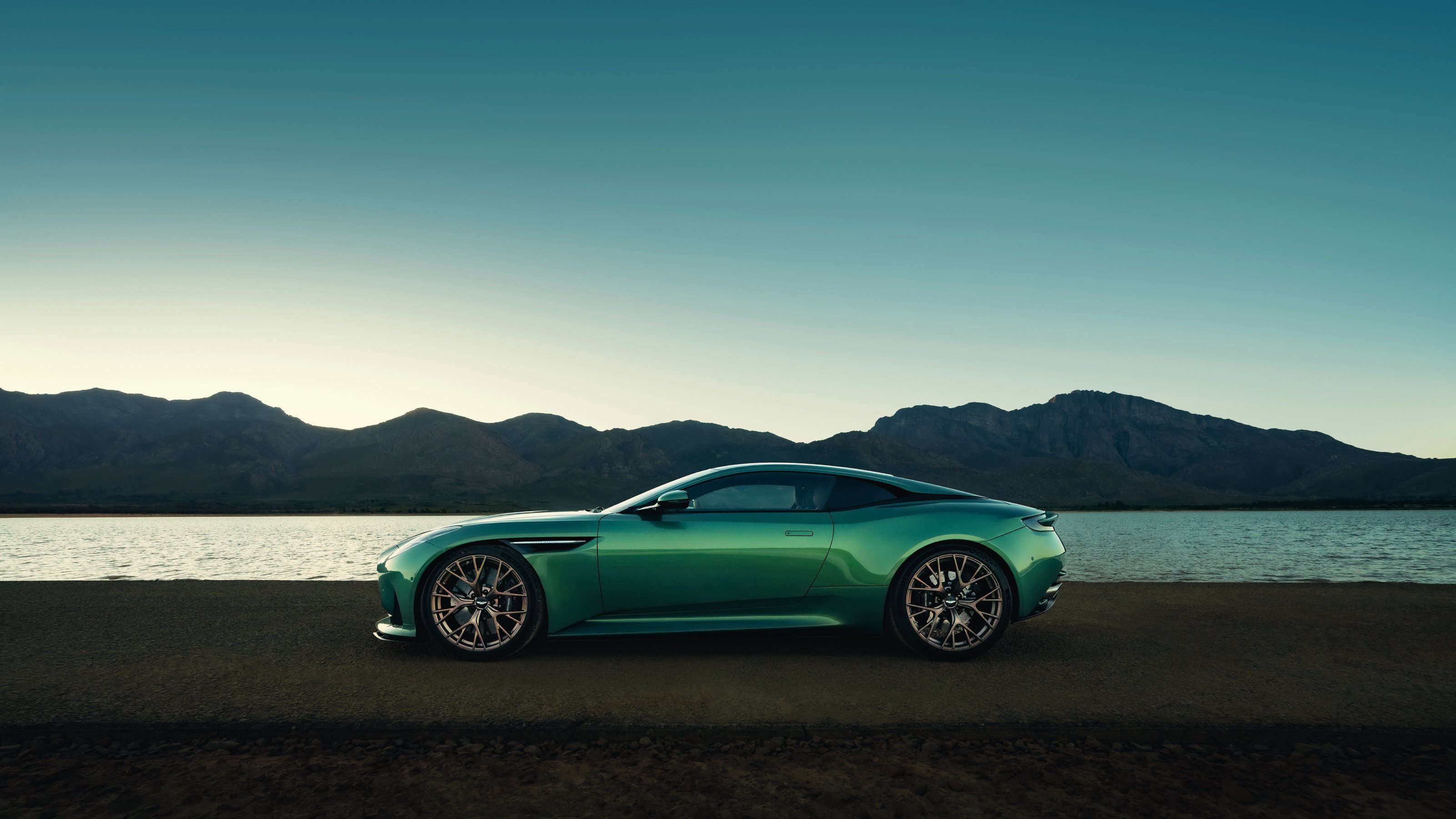
This is the new Aston Martin DB12. ‘New’ needs to be qualified, for the car you see here is the successor to the closely related DB11, introduced back in 2016. It was definitely time for an overhaul, given the increasingly shortened market lifespans of modern cars. However, DB12 needs to do several things: retain the loyalty of Aston Martin owners and inspire new customers while also pointing the way towards the future.
Aston Martin DB12, a ‘Super Tourer’
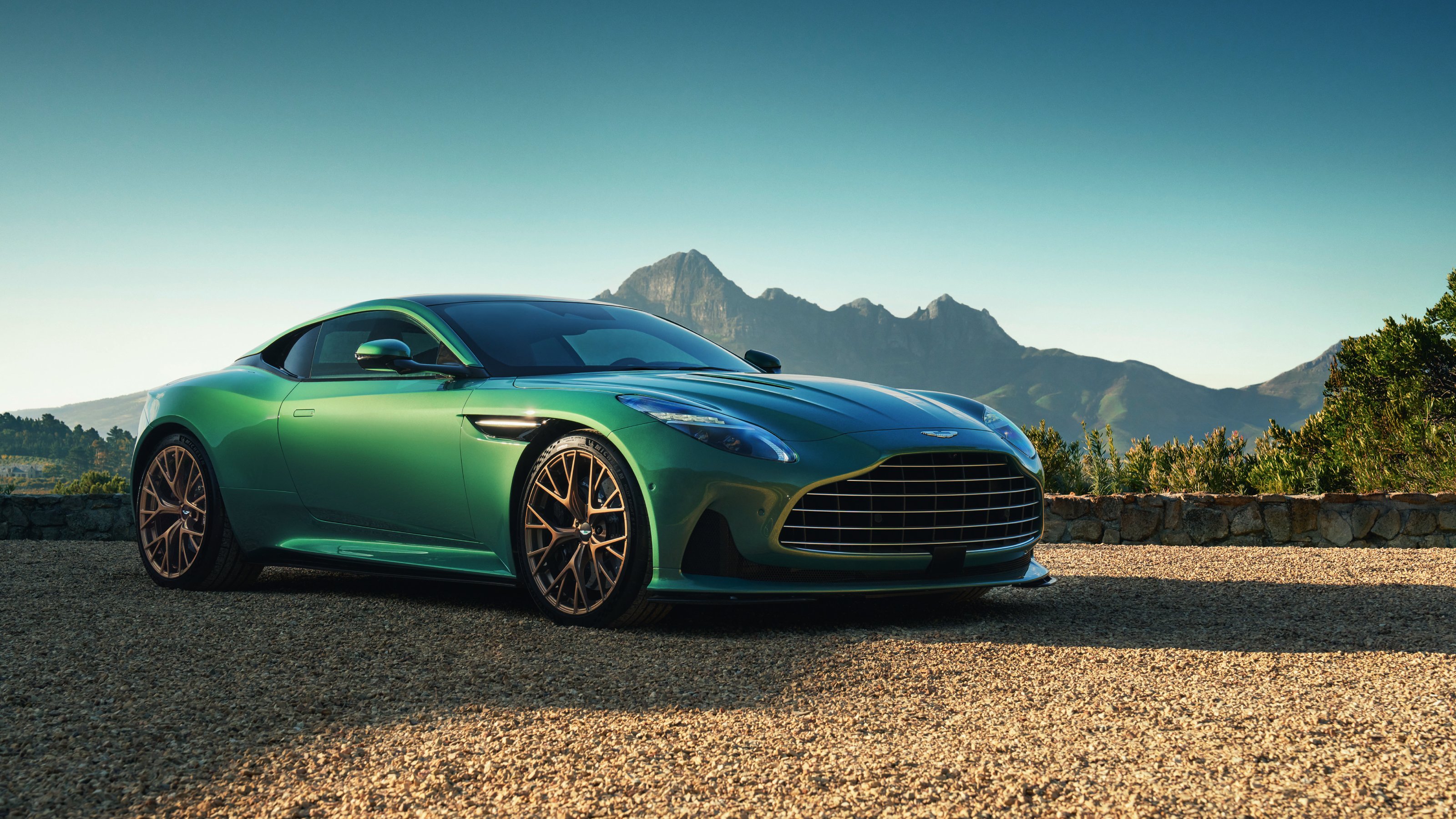
In one respect, the exterior design might be considered as conservative, even though it is undeniably beautiful from every angle. The DB12 hones the lines and proportions established by the DB11 and amplifies the details. A new front end incorporates a deeper, broader manifestation of Aston’s famous grille, more akin to the one found on the Aston Martin DBS. There’s also a hint of the One-77 hypercar in the relationship between vents and wheel arches, filled with massive 21in wheels.
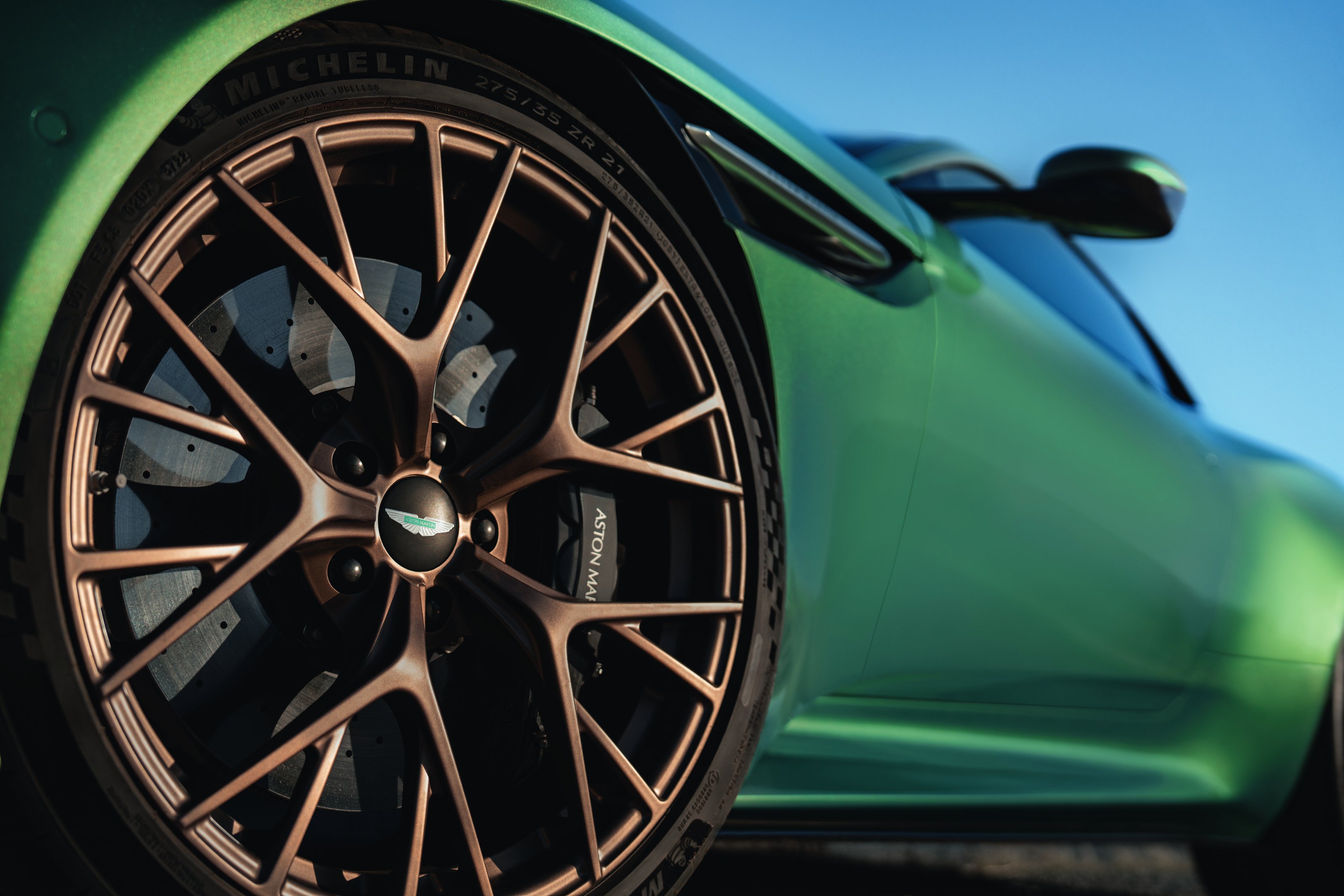
Headlights have been further enhanced with the addition of new LED units and daylight running lights, while the frameless wing mirrors are smaller and more aerodynamic than before. Aston’s new wings badge, shaped in collaboration with Peter Saville, graces the long bonnet and the new car is also a tiny bit wider than the DB11.
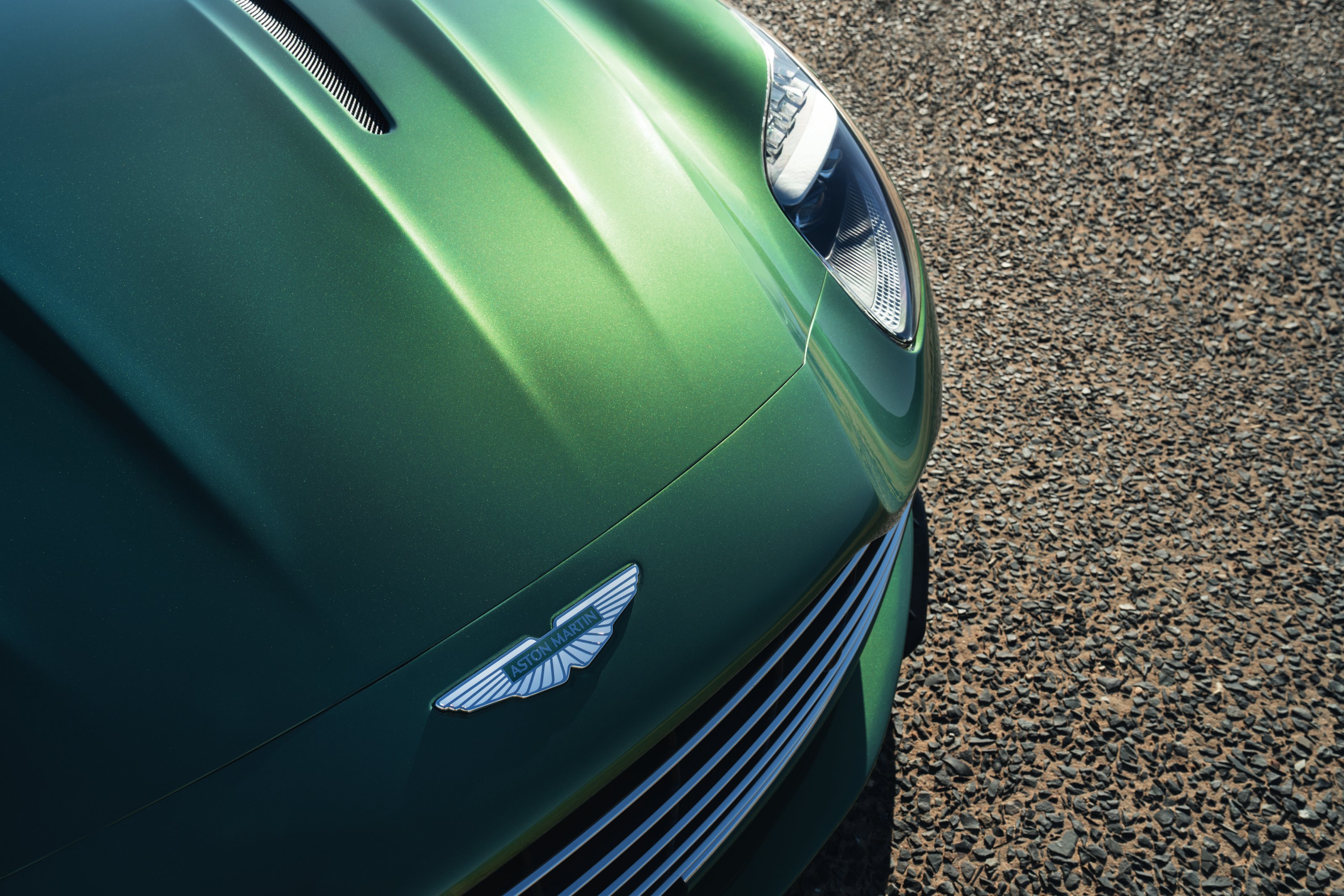
Ultimately, the DB12 is about continuation, maintaining the sense of grand occasion, perfect proportions and out-and-out dynamism that have been integral to the history and evolution of the ‘DB’ cars over their 75-year history. The DB12 is also slightly repositioned; no longer described as a Grand Tourer, it is now a ‘Super Tourer’, an appellation Aston Martin hopes will set it apart from its rivals.
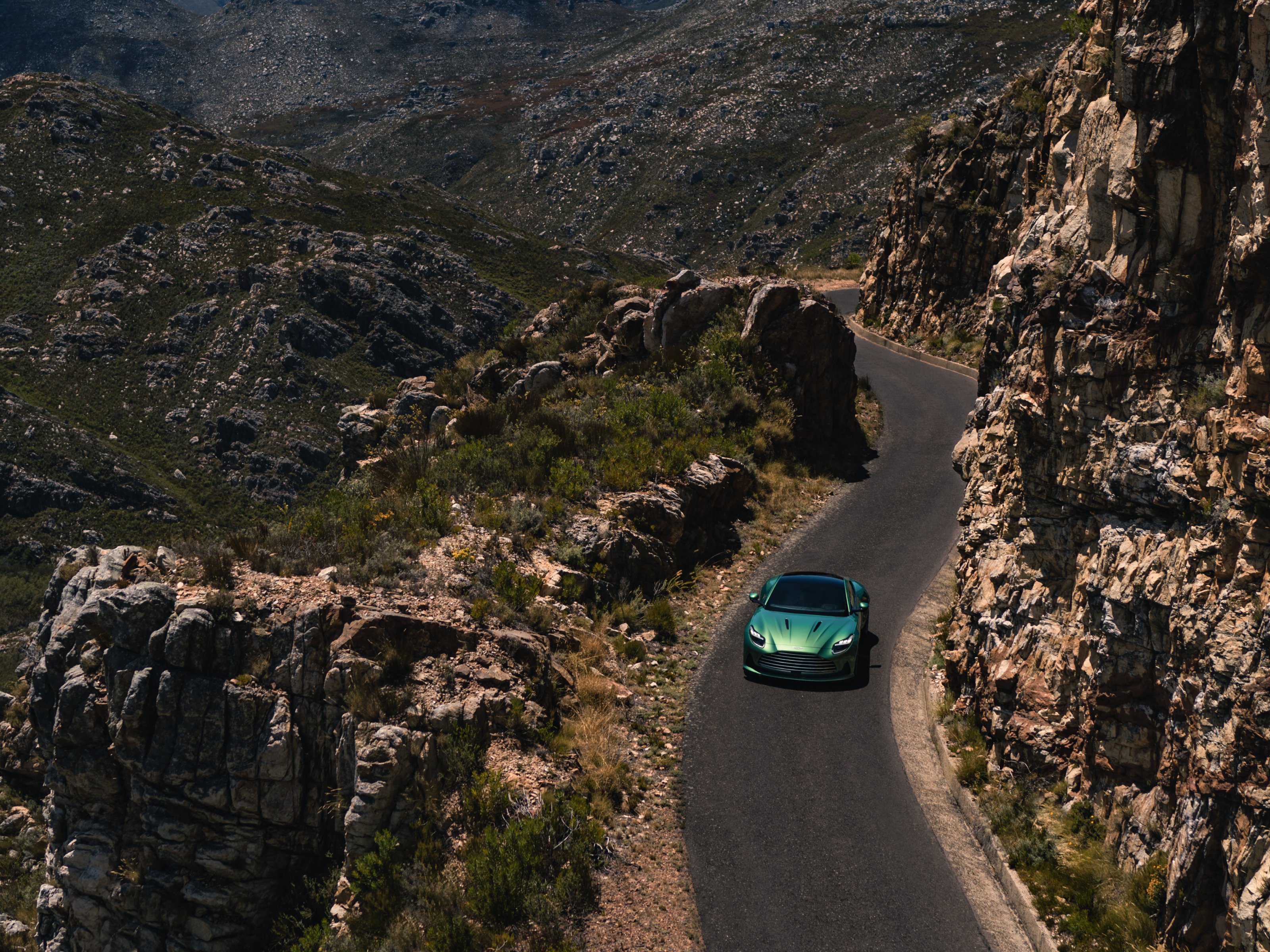
The emphasis on comfort, convenience and luxury is most obvious in the DB12’s interior, which has been given a complete and necessary overhaul. It’s safe to say that the DB11’s weakest point was the layout of the dashboard and the state of the tech. Even with AM’s legendary craftsmanship and material quality, there was an ergonomic awkwardness and inherently dated feel from the outset.
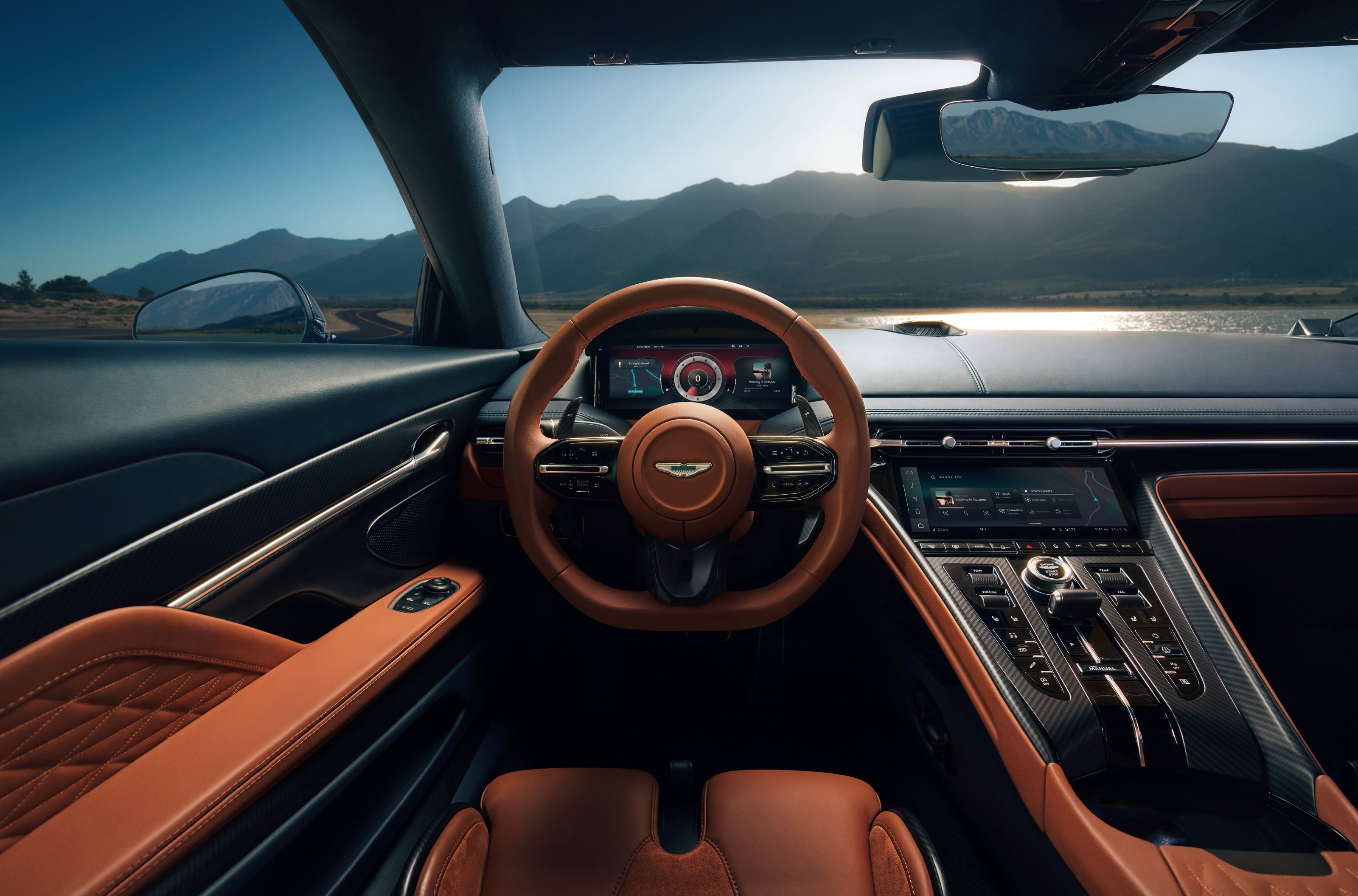
The DB12 rights that wrong. ‘The interior has been completely redesigned,’ says Aston Martin’s executive vice president and chief creative officer Marek Reichman, ‘There are clean horizontal lines emphasising the sense of space and providing the perfect contemporary backdrop for new a new state-of-the-art infotainment system.’
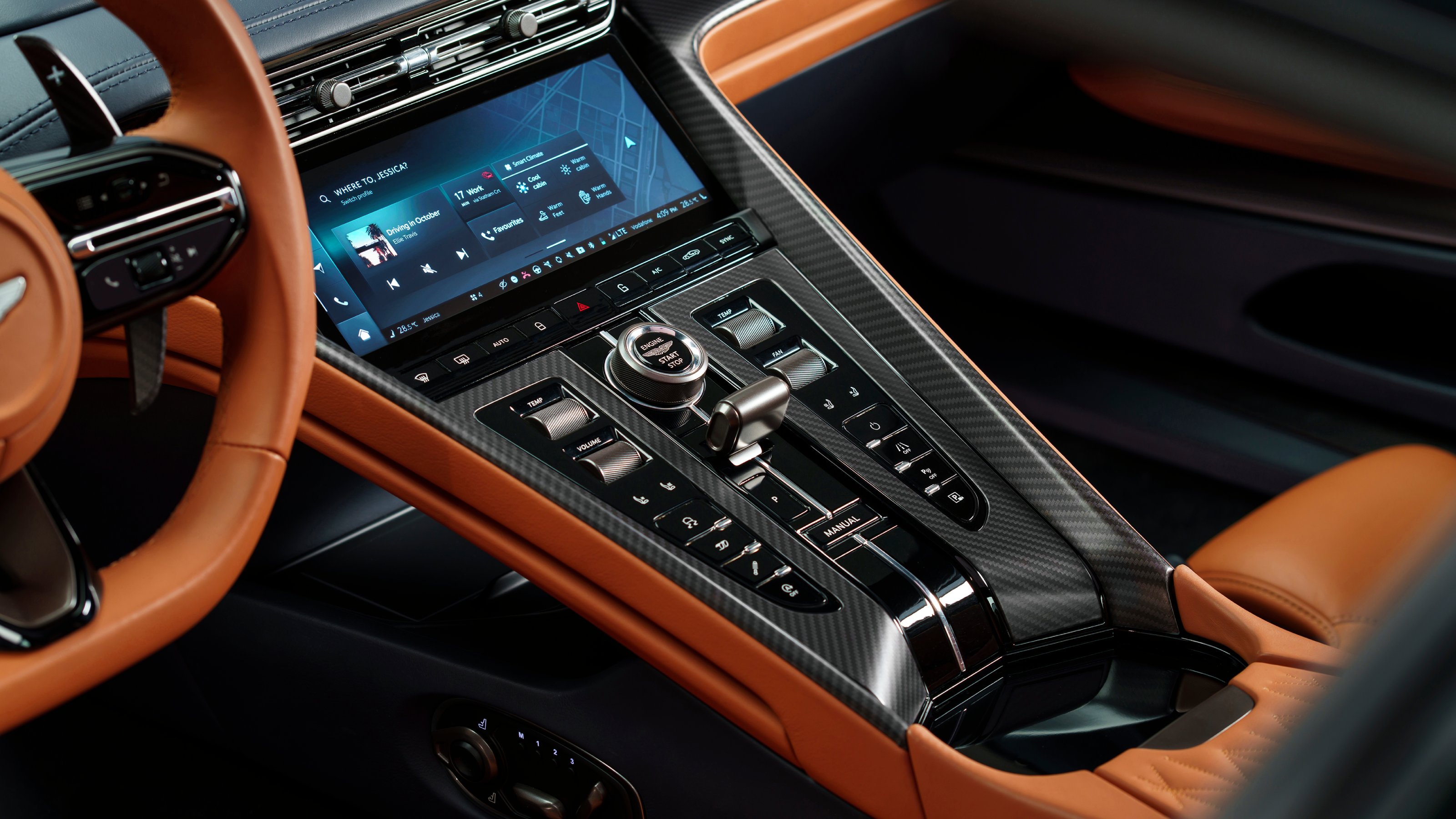
Gone is the high central ‘waterfall’ dashboard that has been a feature of the DB series since the original DB9, and in its place comes a more linear, low-set fascia, with a cascade of function buttons and dials, a distinctive gear selector (no longer operated by buttons) and a seamlessly integrated touchscreen for audio and navigation. The new interior uses materials rather more sparingly, with clearer delineations between upper and lower fascia. Leather is deployed with the usual aplomb, prominently hand-stitched with a unique new quilting pattern.
Receive our daily digest of inspiration, escapism and design stories from around the world direct to your inbox.
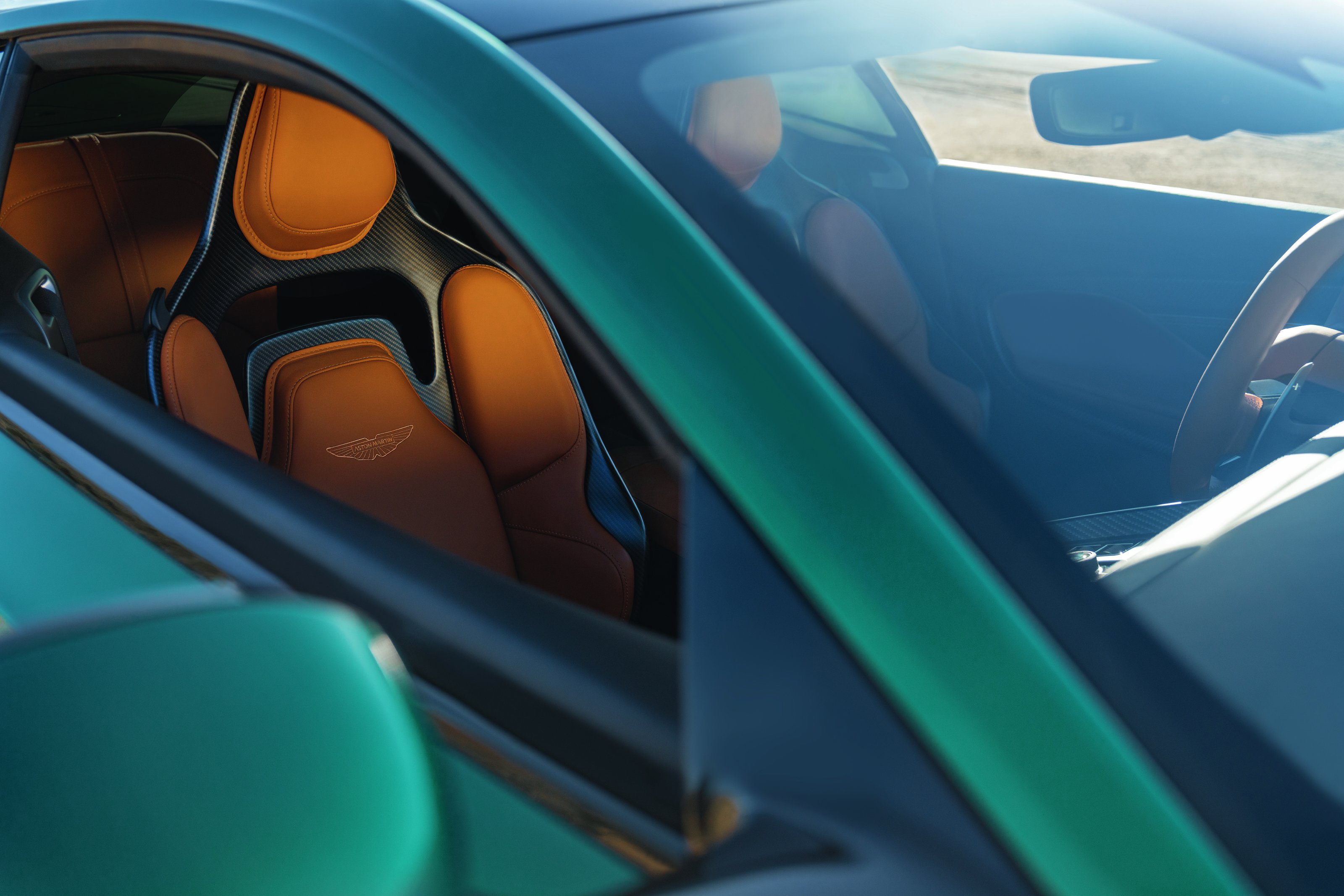
Volume, temperature and fan speed are all controlled by physical dials, another massive bonus, and Apple CarPlay and Android Auto are both fully supported. Aston Martin also has a new audio partner, Bowers & Wilkins. The HMI is Aston’s first-ever bespoke system (it previously relied on Mercedes’ tech, and before that, Volvo’s), and supports satellite and 3D mapping, over-the-air updates powered by an on-board e-SIM and a companion Aston Martin App.
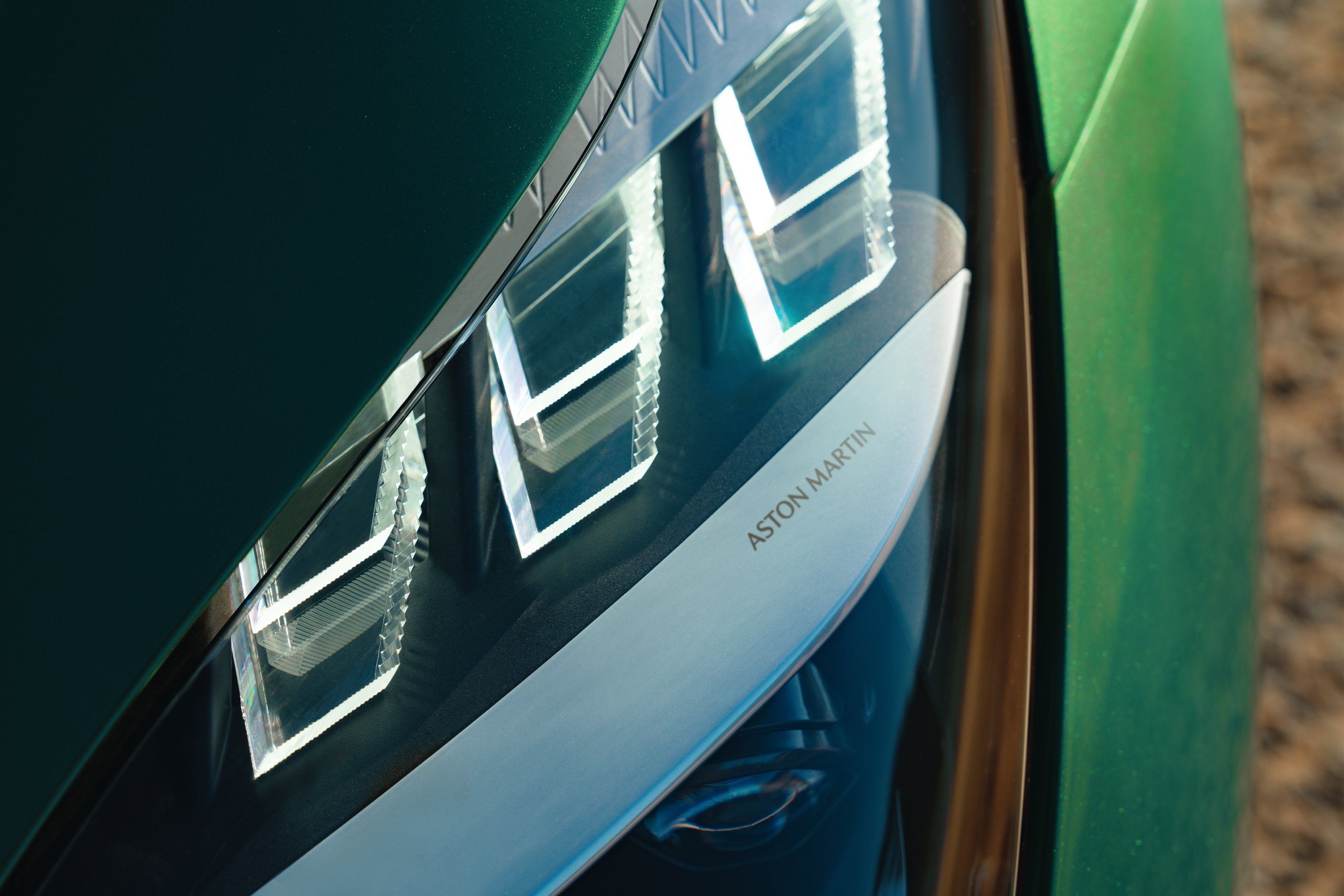
Dynamically, the DB12 promises a great deal. The 4.0-litre twin-turbo V8 (there’s no longer a V12 option) has been boosted to a power output of 680PS, delivering a 0-60mph sprint of 3.5 seconds and a top speed of 202mph. The suspension system is also all-new, with adaptive dampers that should give the car a broad range of capabilities, from dynamic sports car to long-distance driving machine.
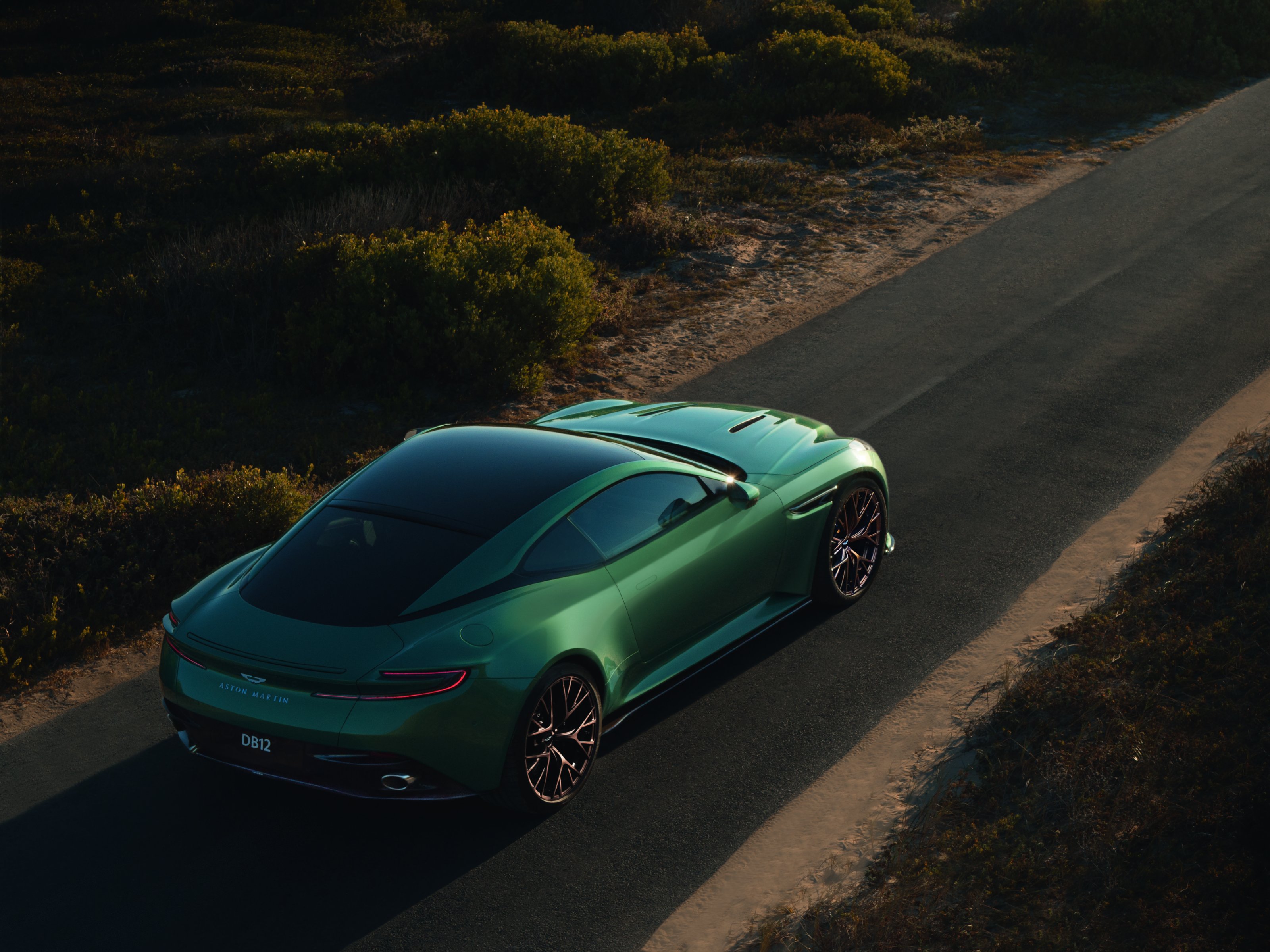
Aston Martin is having a rollercoaster year. With production back at full tilt after the logistical vagaries of the pandemic, much longed-for success on the Formula 1 track, as well as a fresh injection of investment from Chinese industrial titan Geely, the 110-year-old company is well set for the next stage of its evolution. We’ll experience the DB12 in the metal in a few weeks’ time and deliver a verdict on the drive, dynamics and a hands-on with the software and sound system. For now, all the signs are promising.
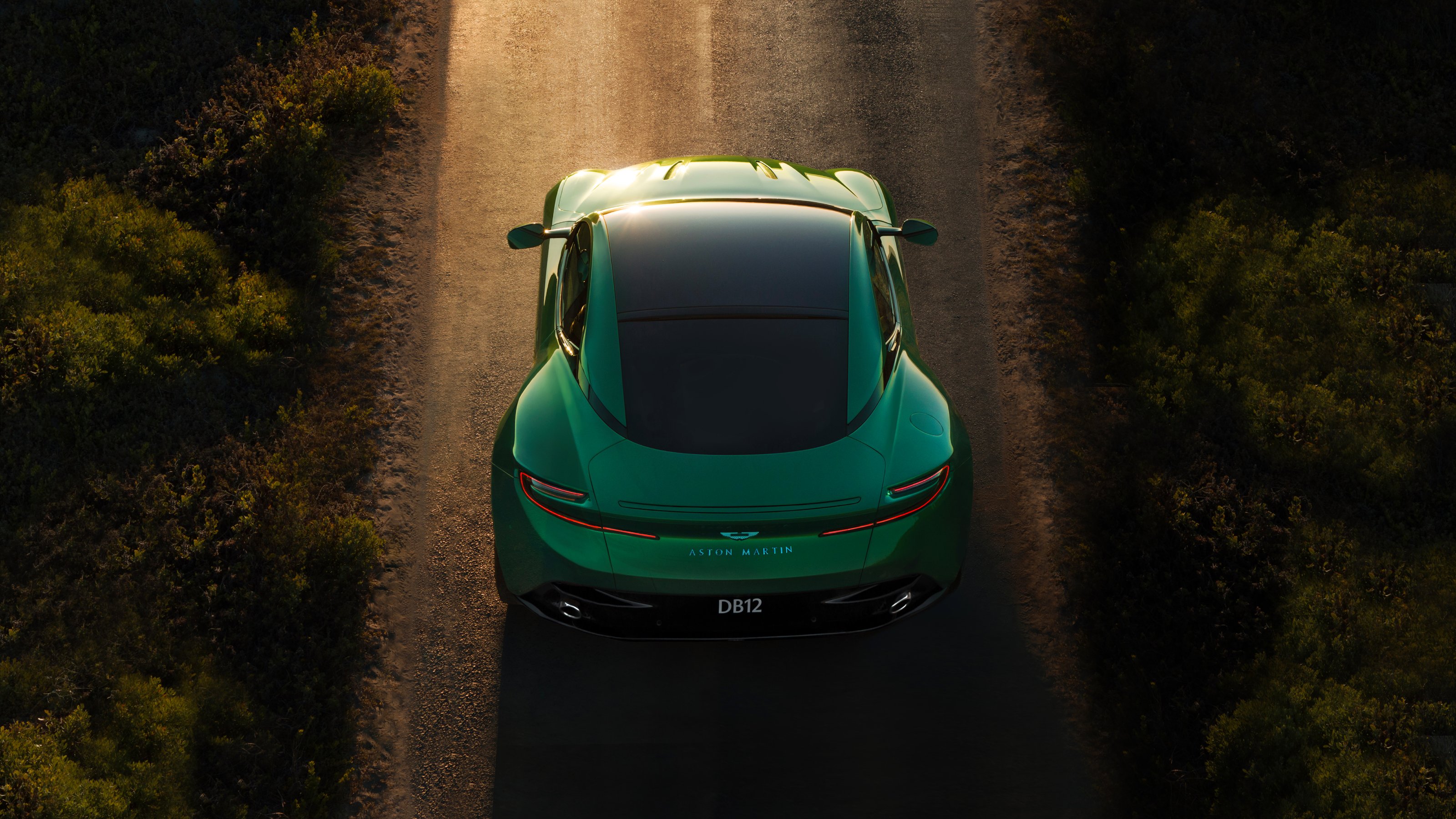
Aston Martin DB12, available from Q3 2023, price tbc, AstonMartin.com
Jonathan Bell has written for Wallpaper* magazine since 1999, covering everything from architecture and transport design to books, tech and graphic design. He is now the magazine’s Transport and Technology Editor. Jonathan has written and edited 15 books, including Concept Car Design, 21st Century House, and The New Modern House. He is also the host of Wallpaper’s first podcast.
-
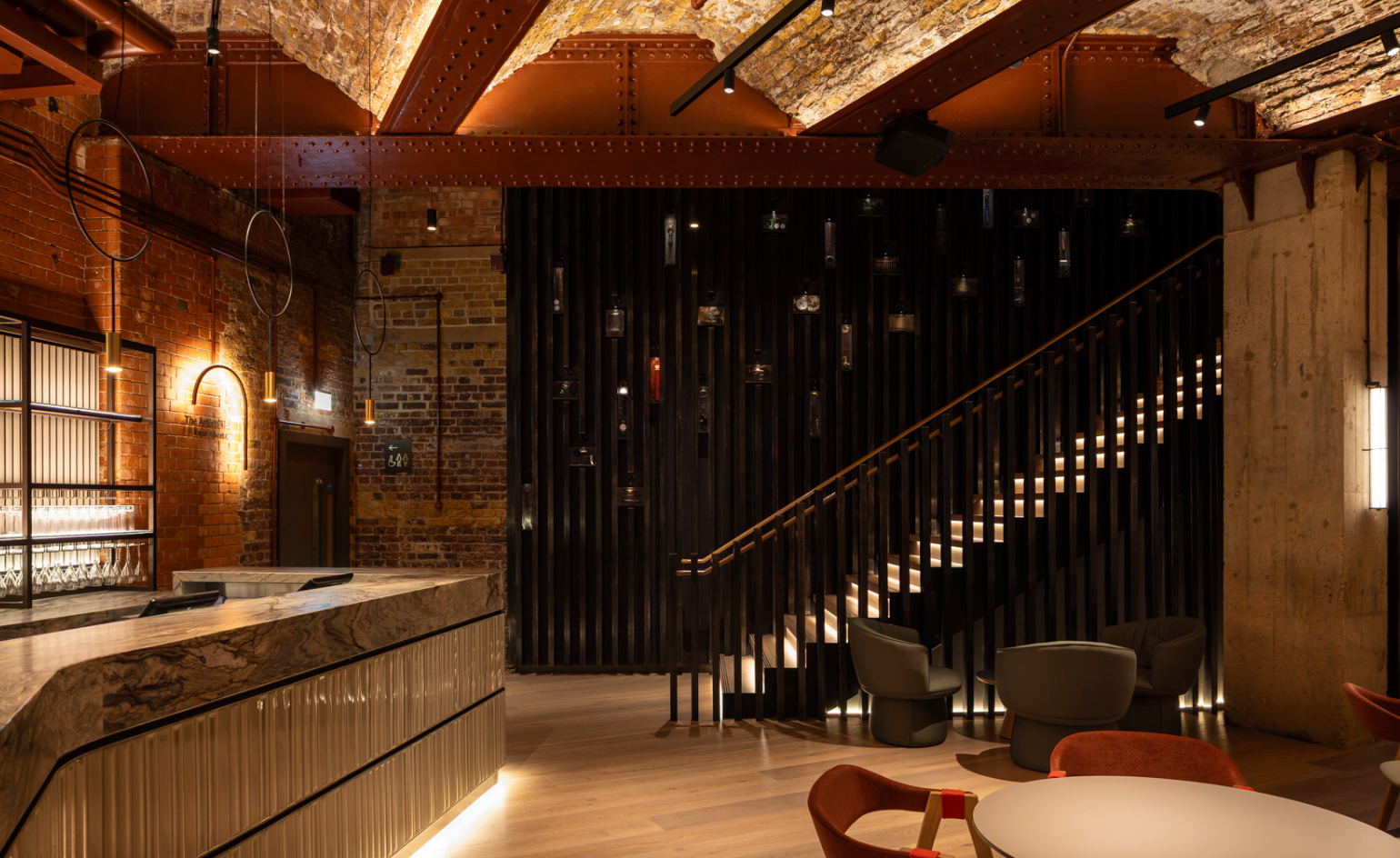 Take an exclusive look at the Royal Albert Hall’s new Artists’ Bar
Take an exclusive look at the Royal Albert Hall’s new Artists’ BarLocal architecture studio BDP converts the Royal Albert Hall’s steam boiler house into a sophisticated bar for performers (and their guests – see if you can get yourself invited)
-
 Van Cleef & Arpels’ immersive workshops reveal jewellery-making secrets
Van Cleef & Arpels’ immersive workshops reveal jewellery-making secretsEvery year in Lyon, Van Cleef & Arpels opens its doors to the public with a series of workshops and events. Here is what goes on
-
 Stay at this 17th-century farmhouse featured in ‘Hamnet’
Stay at this 17th-century farmhouse featured in ‘Hamnet’Inspired to live like a Tudor? Cwmmau Farmhouse, available as a holiday let through the National Trust, stars as the childhood home of Shakespeare’s wife, Agnes
-
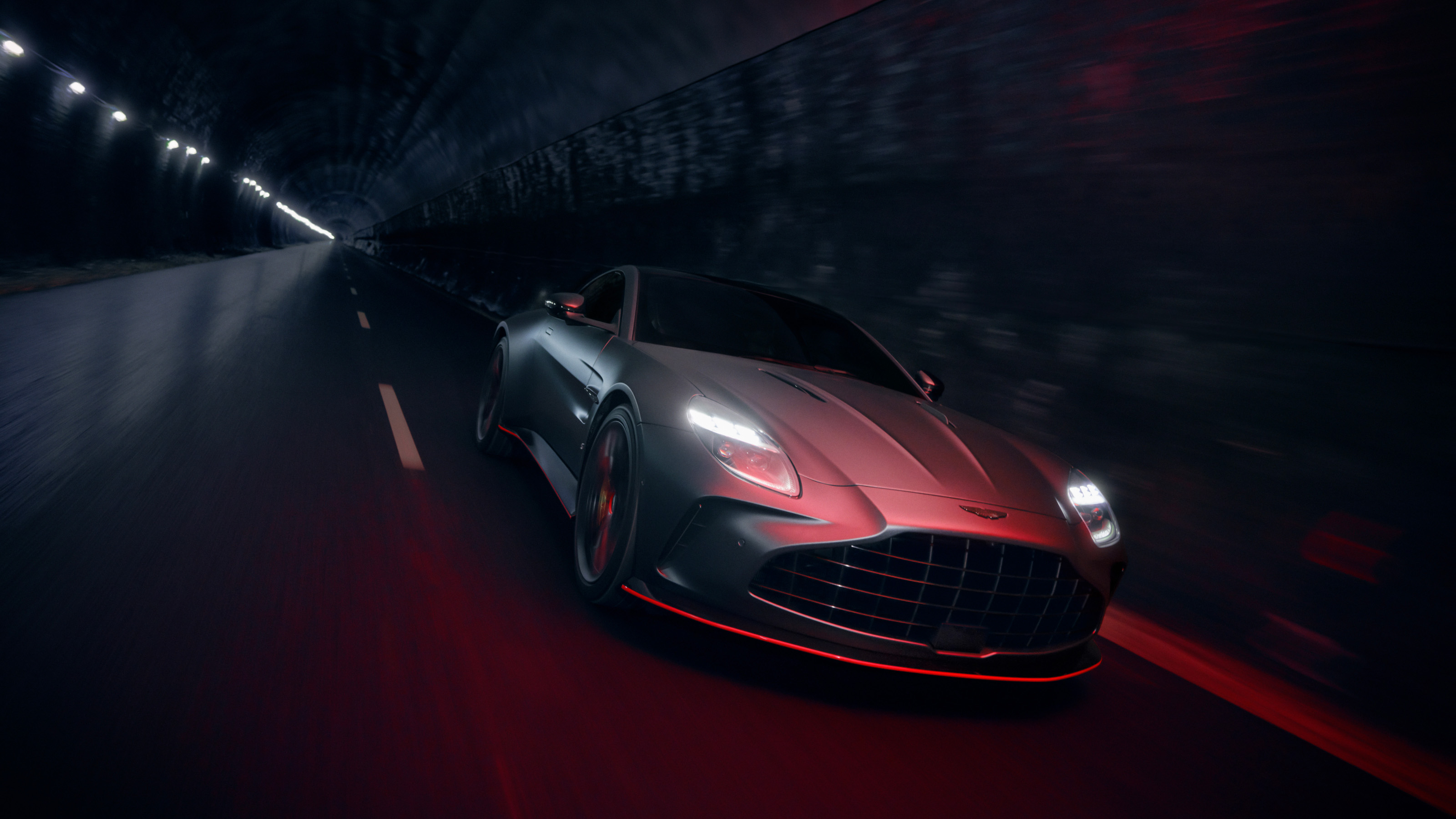 Aston Martin goes goth, ramping up power, poise and dark glamour with the new Vantage S
Aston Martin goes goth, ramping up power, poise and dark glamour with the new Vantage SThese moody images mark the debut of the latest model out of Gaydon, the dynamically focused Aston Martin Vantage S
-
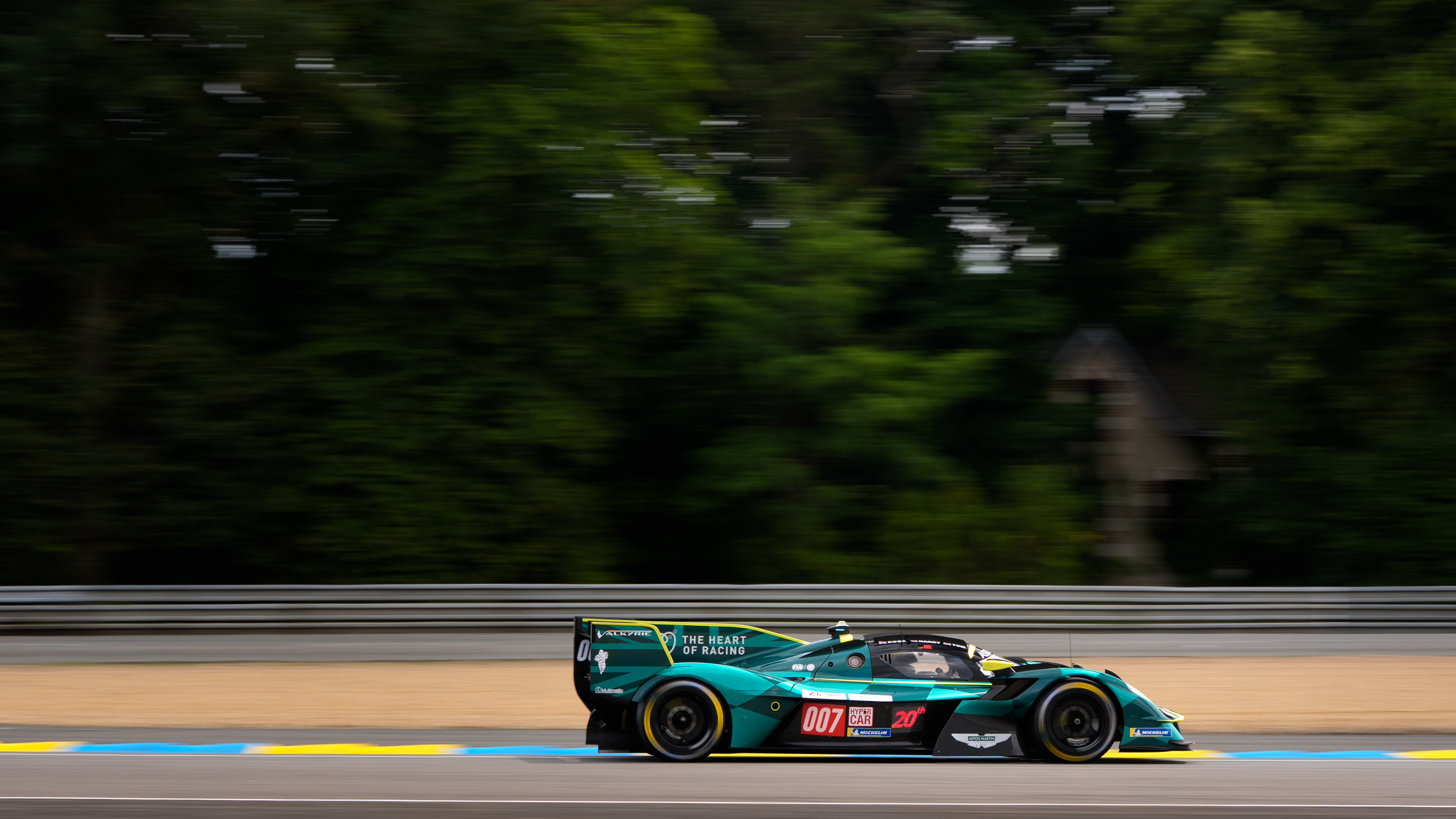 The Valkyrie returns Aston Martin to top-level Le Mans competition
The Valkyrie returns Aston Martin to top-level Le Mans competitionWallpaper* went trackside to witness the Aston Martin Valkyrie's impressive showing at the 24 Hours of Le Mans 2025
-
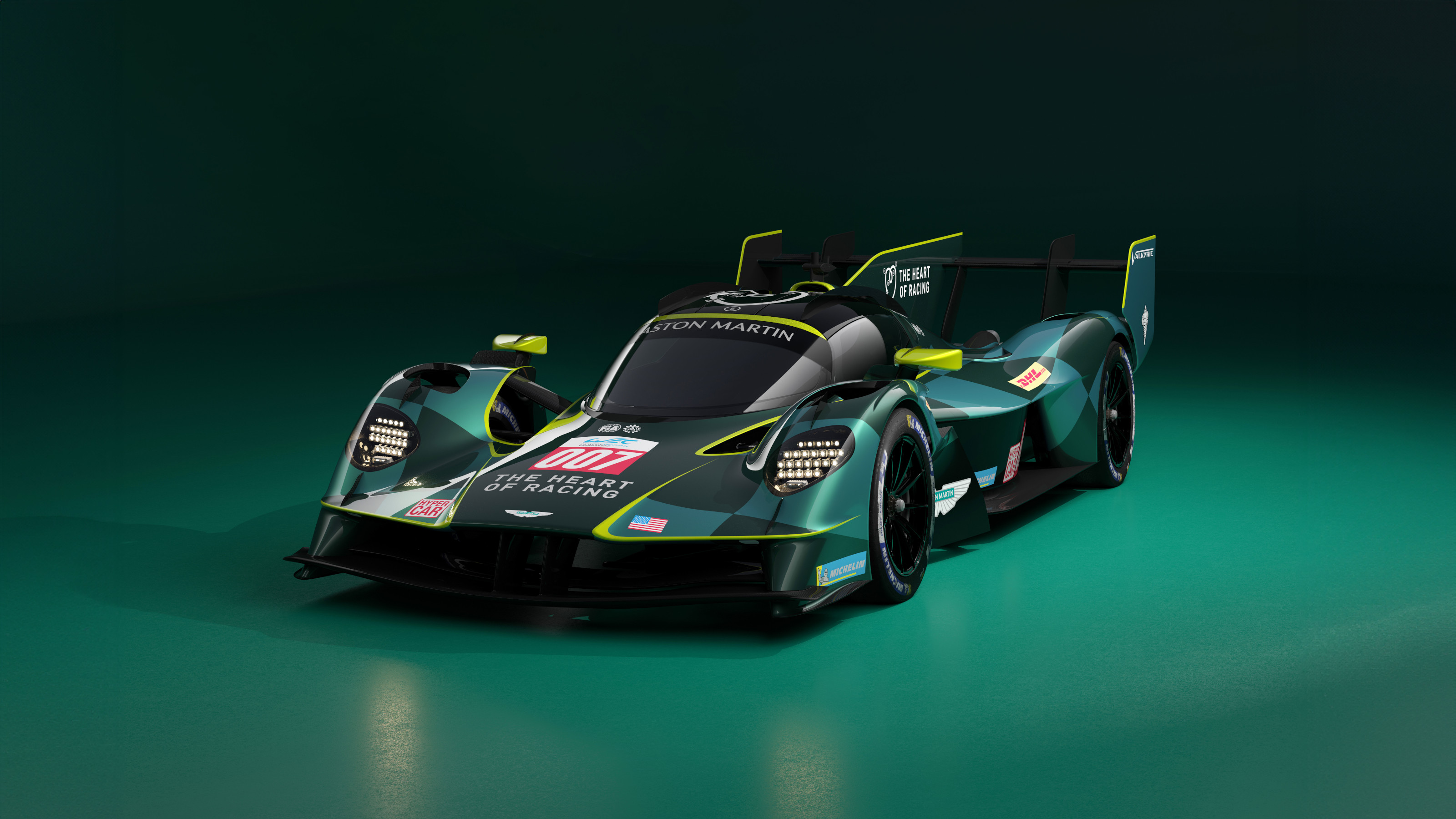 Aston Martin reveals first ever racing variant of its extreme Valkyrie hypercar
Aston Martin reveals first ever racing variant of its extreme Valkyrie hypercarAiming to conquer Le Mans, as well as other endurance races around the world, Aston Martin and The Heart of Racing unveil the track-focused Valkyrie WEC and IMSA challenger
-
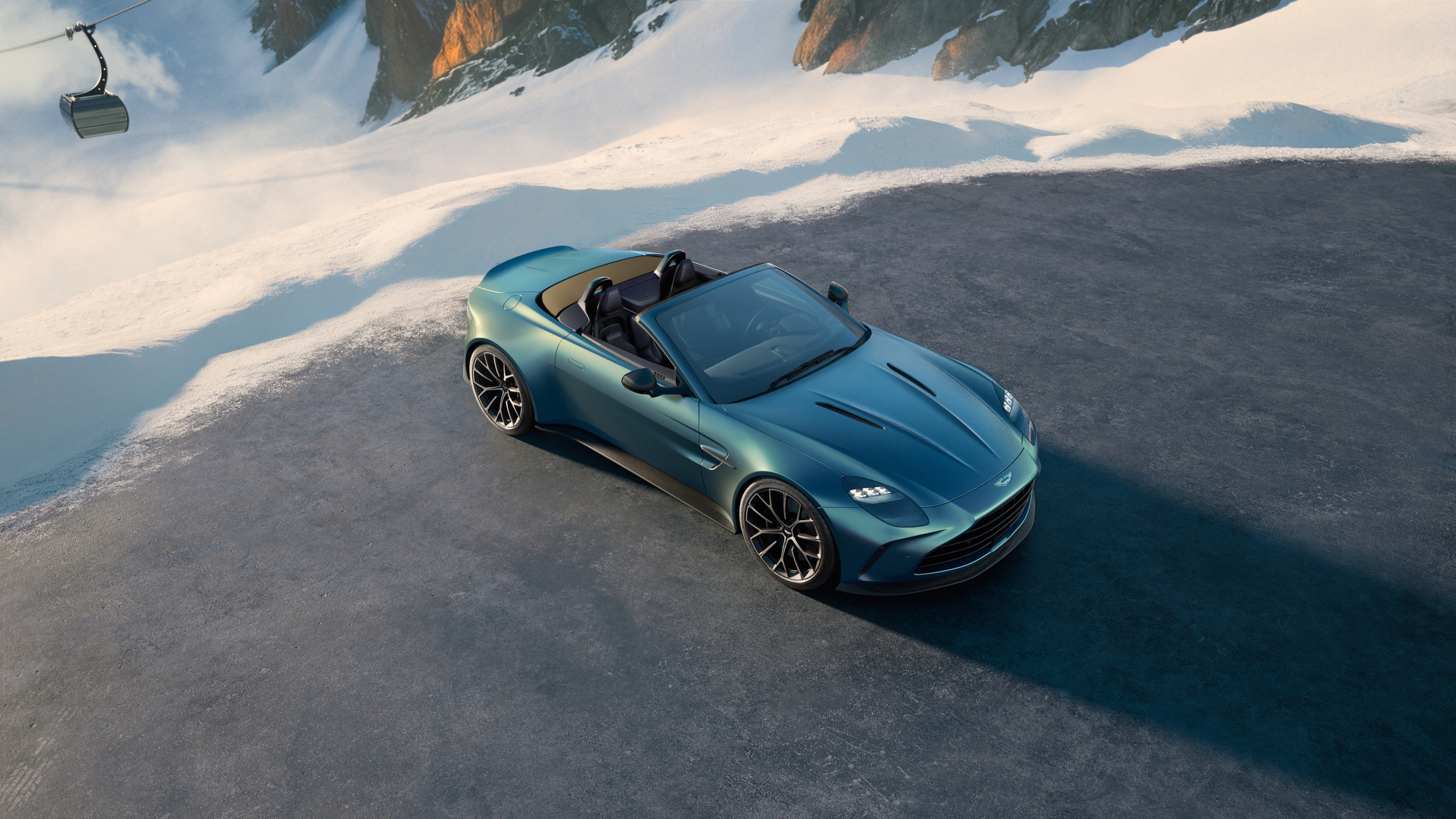 The new Aston Martin Vantage Roadster gives you an elemental experience
The new Aston Martin Vantage Roadster gives you an elemental experienceEvery statistic about the new Vantage Roadster screams speed; this is a convertible for those in a hurry and unafraid to make a noise about it
-
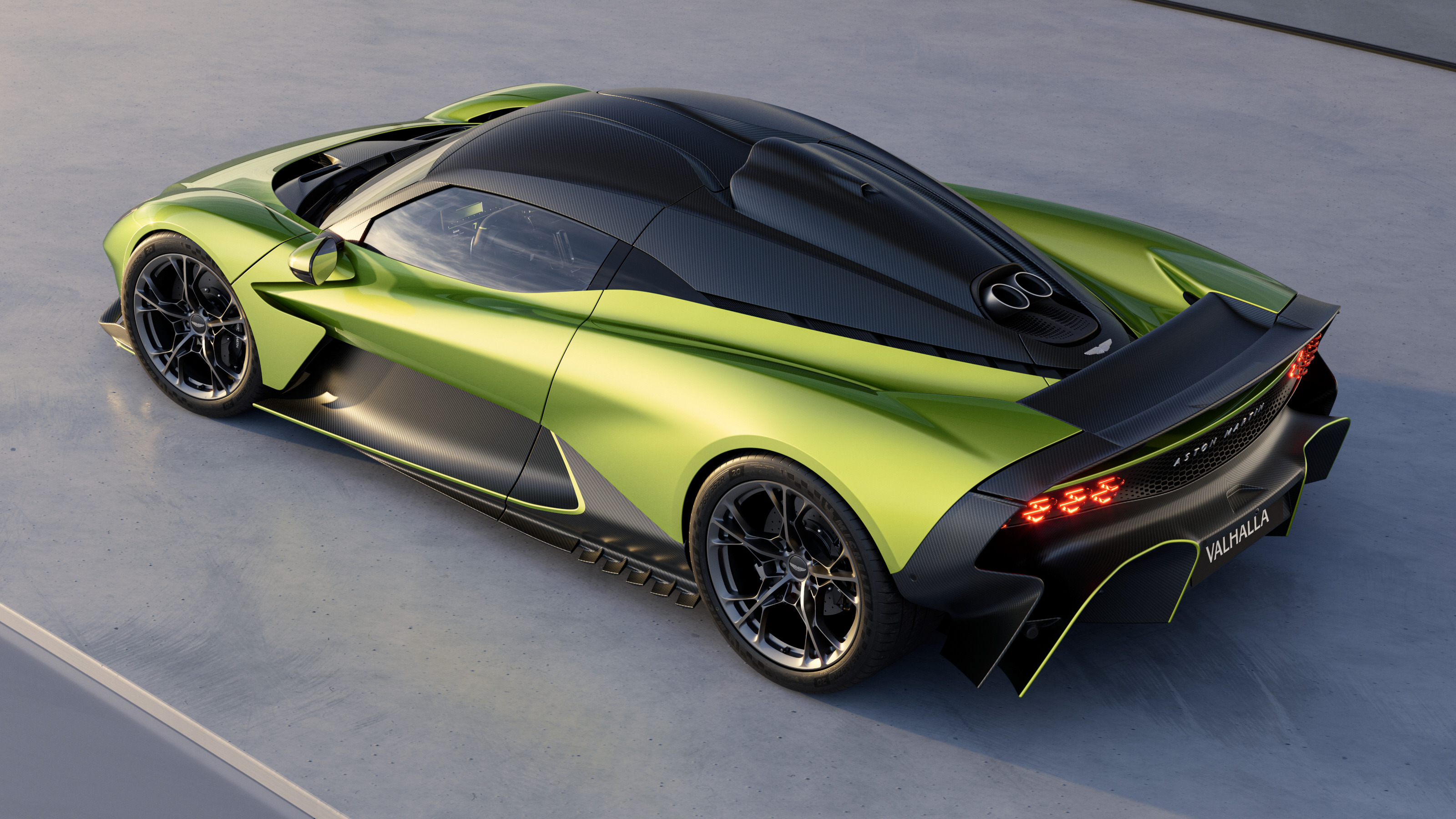 Raise your horns: Aston Martin’s Valhalla blends race-car dynamics and high-tech craft
Raise your horns: Aston Martin’s Valhalla blends race-car dynamics and high-tech craftValhalla is the first ever mid-engine series production Aston Martin, a hybrid V8 limited to 999 units
-
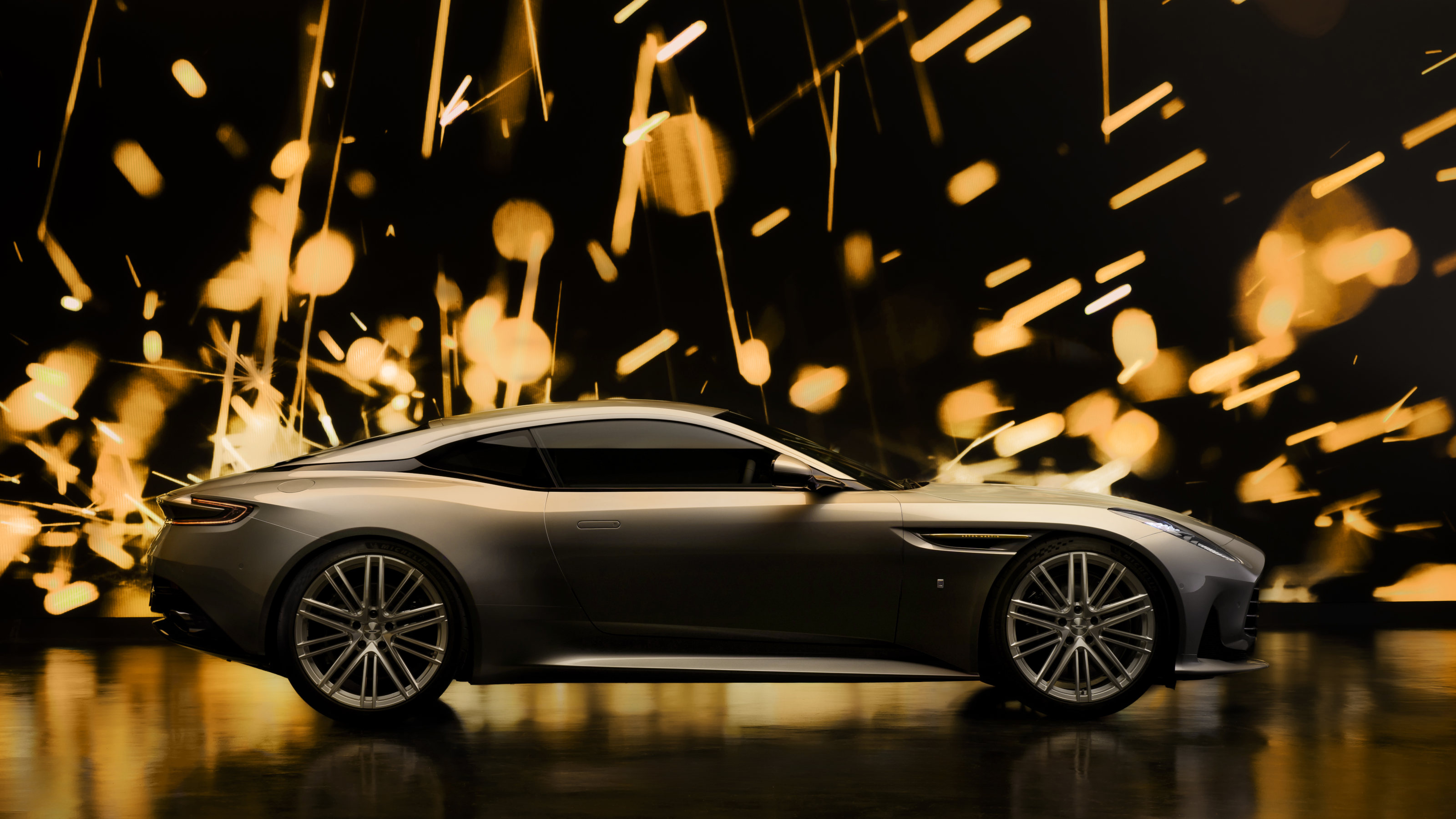 Aston Martin bring the Midas touch to their super tourer with the DB12 Goldfinger Edition
Aston Martin bring the Midas touch to their super tourer with the DB12 Goldfinger EditionReleased in honour of the sixtieth anniversary of the iconic James Bond film, Aston Martin has gone all out to the DB12 Goldfinger Edition a worthy collector’s item for high rolling film fans
-
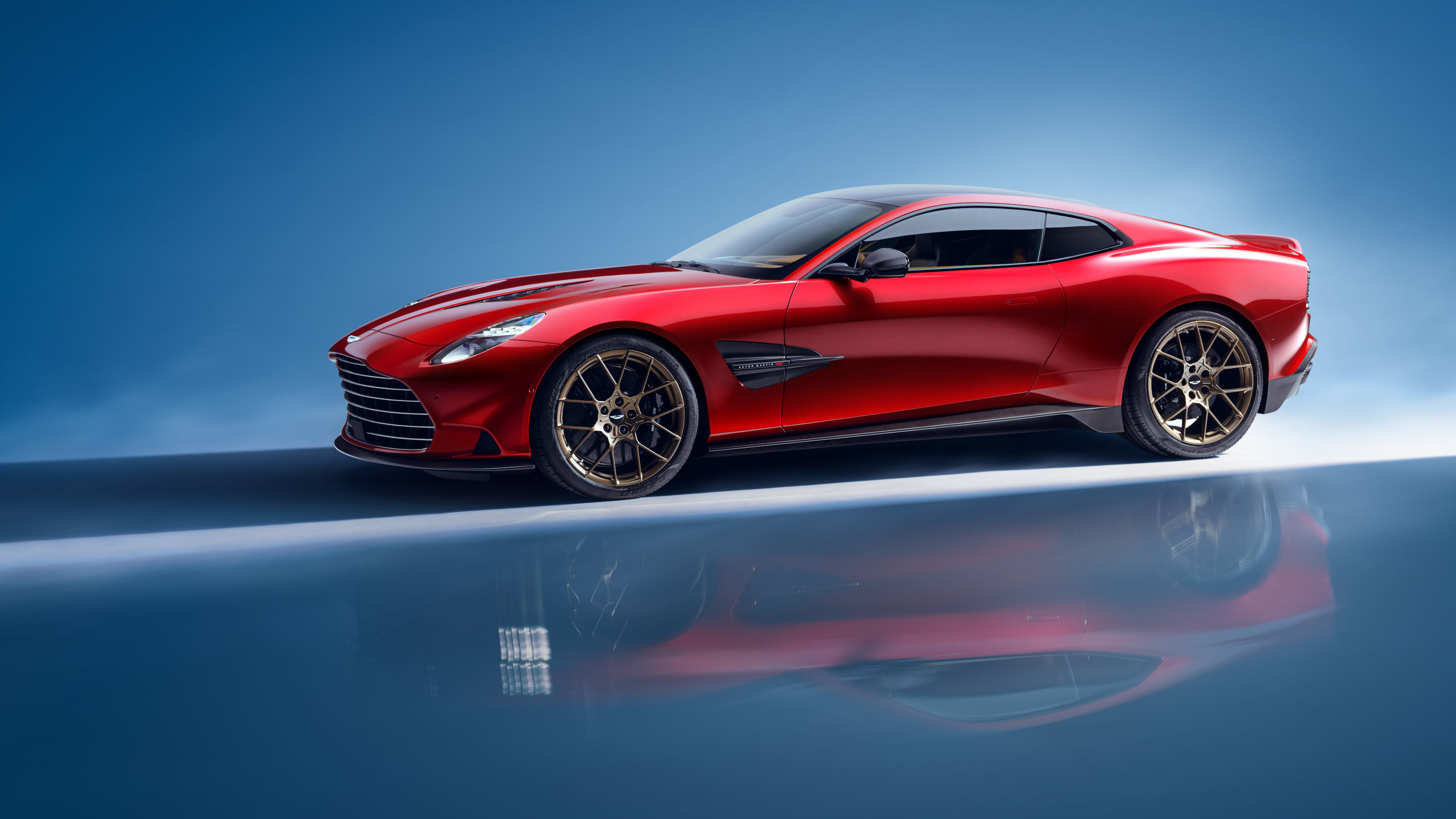 The new V12-powered Aston Martin Vanquish arrives to conquer the world of luxury GT cars
The new V12-powered Aston Martin Vanquish arrives to conquer the world of luxury GT carsThe luxury British marque’s new Vanquish flagship is absolutely, positively, definitely, its final flirtation with V12 power. Or is it?
-
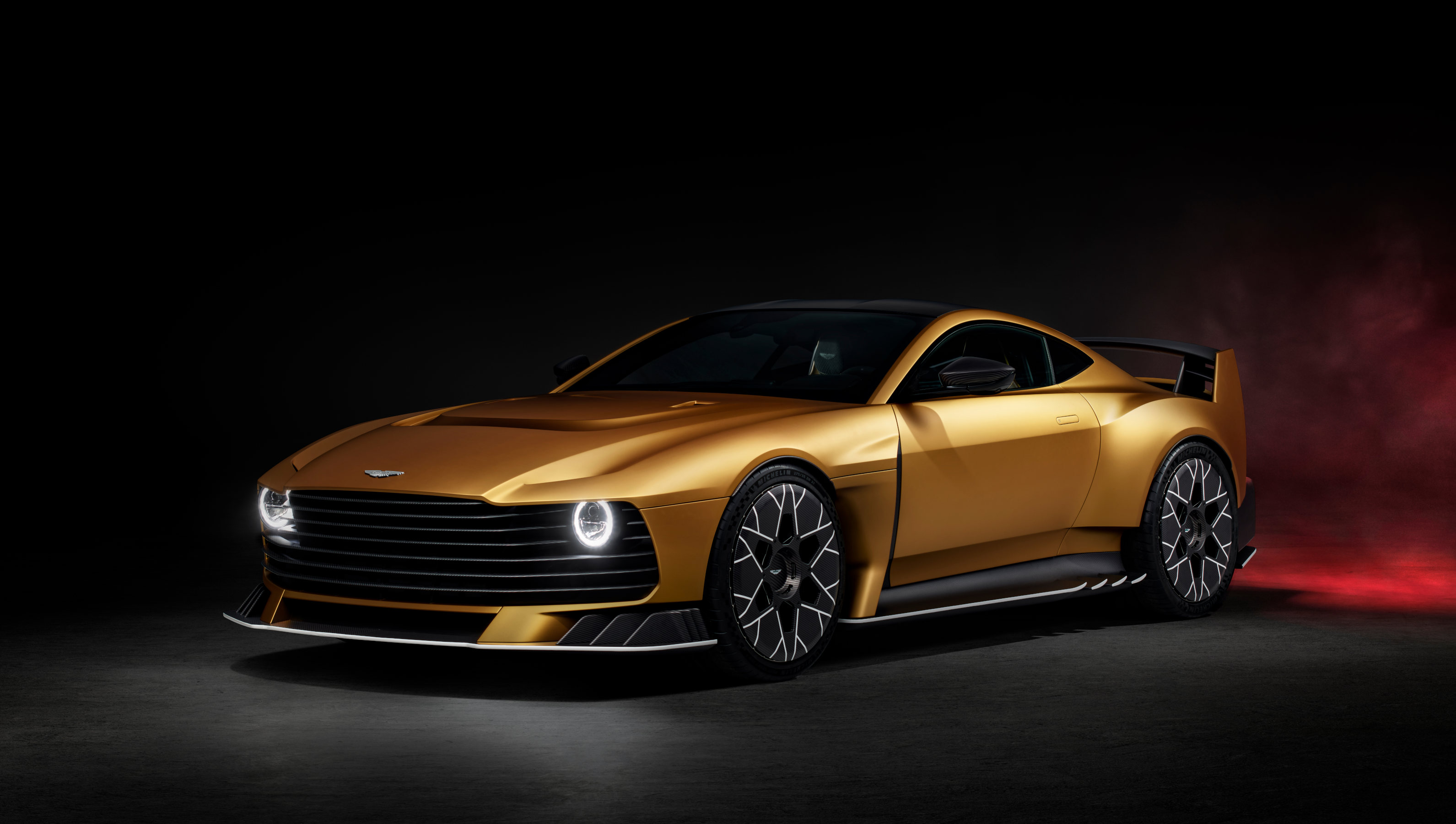 Could a car be any more muscular? Aston Martin unleashes the bold and brutalist Valiant
Could a car be any more muscular? Aston Martin unleashes the bold and brutalist ValiantEquipped with a V12 engine, manual gearbox and chiselled bodywork, the limited-edition Aston Martin Valiant is the company’s most extreme front-engined road car to date